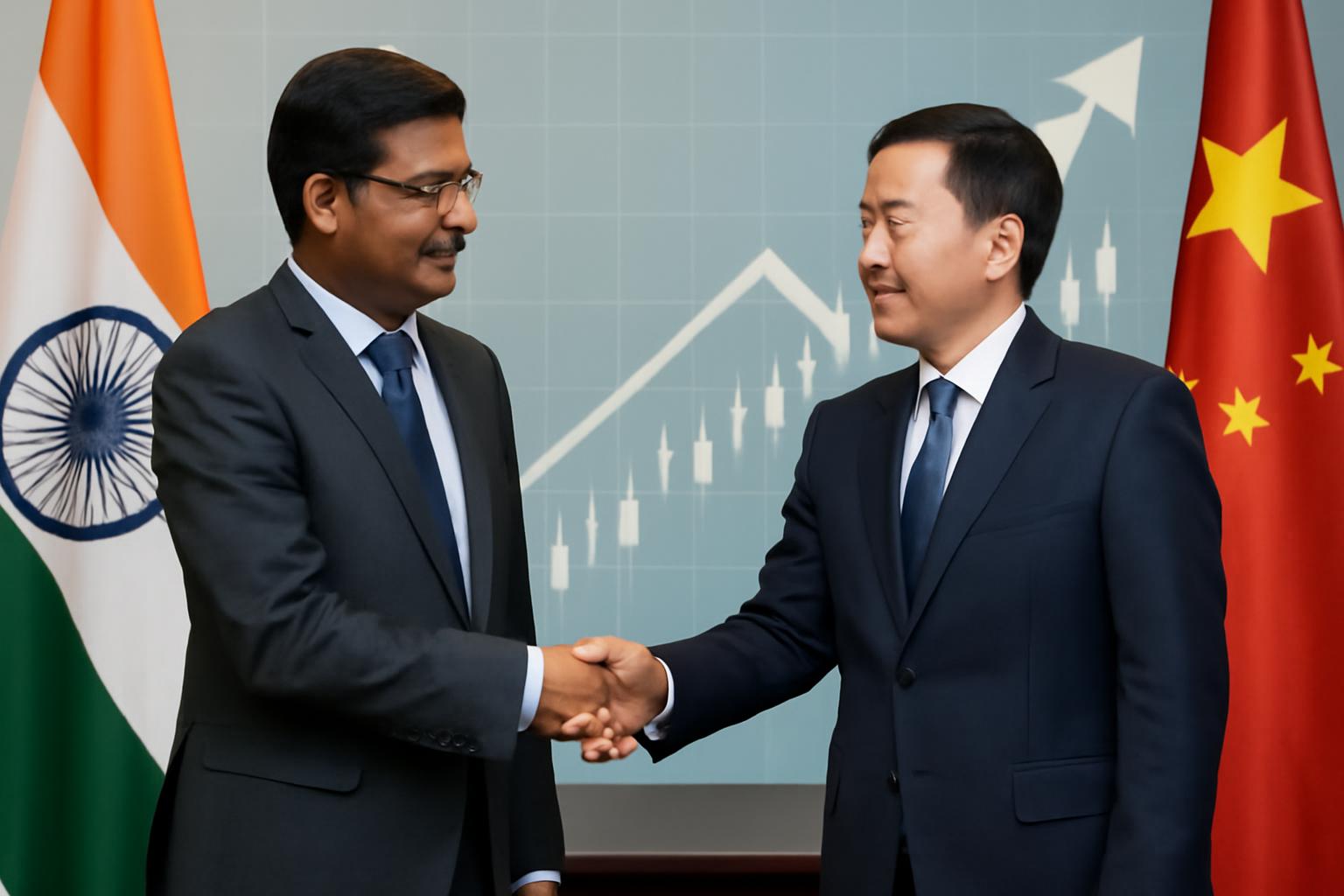Two of the world’s most populous nations are guiding themselves away from the brink of a long-standing border quarrel toward a posture of measured cooperation. At a summit on the margins of a regional gathering, their leaders spoke of rapprochement built on mutual respect, trust, and consideration, promising peaceful ties and the prospect of shared development for billions of people. The broad arc of their talks sits against a backdrop of a more unsettled global lattice, where the United States’ shifting stance and the dynamics of Russia’s alignment continue to shape how power and prestige are earned. A meeting between one nation’s leader and Russia’s president was on the cards, a reminder that power is not housed in a single bloc but ripples through a web of relationships that hold the world together as much by commerce as by competition. Observers in Washington, watching for signals about trade and sanctions, sense how the choices of these two neighbors might reverberate beyond their steppes and plateaus.
What is being tested here is not merely the management of a frontier but the legitimacy of political authority to foster growth without throttling the very information that makes growth possible. For the essence of prosperity lies not in grand gestures or strategic illusions but in the orderly operation of social life under a framework of stable laws and predictable rules. If this budding rapprochement rests on the hard won habit of respecting property rights, enforcing contracts, and allowing individuals and firms to respond to prices and incentives, then it is more than a diplomatic charm offensive; it is a quiet experiment in liberty applauding the intimate coordination of thousands of local decisions. But there is a peril that such a concert of nations may become a new axis of planning, where the veneer of cooperation hides a compulsory drawing of economic lines, subsidies, or selectively shielded industries under a shared banner of development. The danger is not merely missteps in diplomacy but a creeping belief that the state can orchestrate welfare more effectively than the decentralized, bottom‑up processes of markets and voluntary exchange.
Trust, in the Hayekian sense, is not minted by a handshake at a summit but earned through the continuity and transparency of institutions that no single ruler can rewrite at will. If India and China’s dialogue grows into a framework that welcomes open trade, minimizes distortions, and respects the rule of law across borders, it could become a living laboratory for peace through economic freedom. In other words, the most hopeful path is one where cooperation is anchored in the freedom to innovate, to fail, to adapt, and to learn from each other through the ordinary business of exchange, not the conspicuous performance of statecraft. The more that cross‑border ties are built on the reliable operation of competitive markets, the less the temptation to substitute arbitrary force for the coordination that markets spontaneously provide.
Yet we should not forget the wider stage on which this drama unfolds. The America‑led order and the rival blocs that now seek to redefine it do not evaporate because two neighbors declare friendship; they evolve as power contends with power. In such a landscape, the deepest safeguard of liberty is not a treaty alone but the enduring conviction that policy must be kept within the province where knowledge is local and dispersed, where plans cannot be made for every outcome, and where the price system—unlike the fiat of grand designs—sifts truth from illusion. If the new mood among India and China is to prosper, it will be by allowing the greatest possible room for voluntary exchange, by resisting the impulse to substitute command for coordination, and by recognizing that peaceful prosperity is less the fruit of rulers’ intentions than the natural consequence of a society that treats individuals as ends and allows their discoveries to be made manifest through commerce.
In the end, the true test of any rapprochement is whether it unlocks freedom within markets and safeguards the limits of state power, so that the people who live at the edge of these great civilizations can shape their own destinies through enterprise, innovation, and the ordinary, unglamorous work of cooperation. If that is the path chosen, the border will not merely soften; it will become a seam where prosperity is stitched by the hands of countless ordinary actors, and the possibility of lasting peace will rest not on a balance of fear, but on a balance of opportunity.
